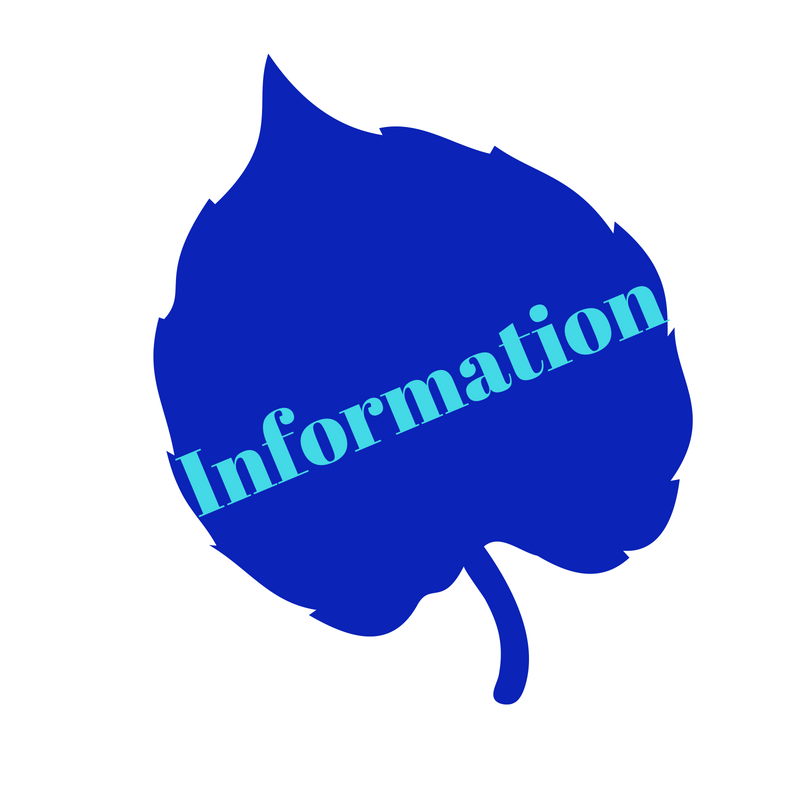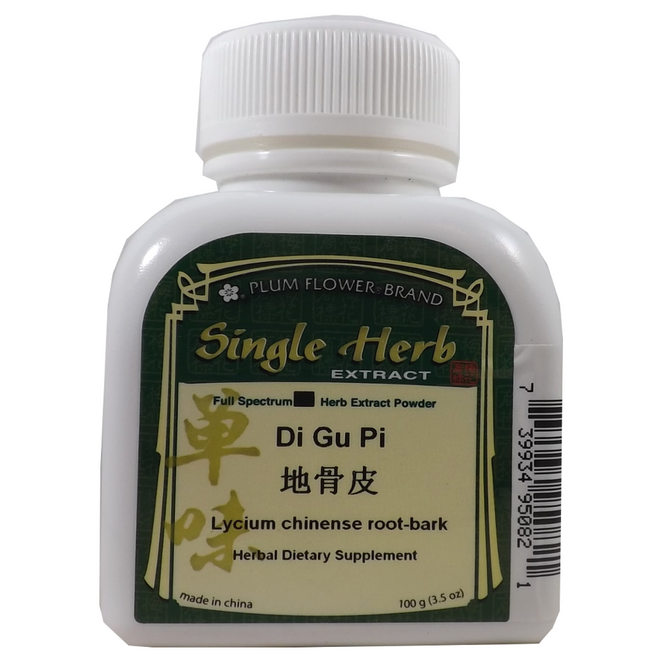Herbal Information for Lycium Bark in Extract Powder Form
Common Name: Lycium Bark, Wolfberry Root Bark, Wolfberry Cortex, Cortex Radicis Lycii Chinensis
Botanical Name: Lycium Chinense
Pin Yin Name: Di Gu Pi
Other Ingredients: Dextrin (Derived from Non-GMO corn)
Package Size: 100 Grams
Form: Concentrated Extract Powder
Dosage: Follow doctors instructions on how to use this herb.
Origin: China
Brand: Plum Flower, species - authenticated herbs
Cautions: Do not use if pregnant or nursing.
California Prop 65
Naturally Occurring Components: Cinnamic acid, polyphenols, Betaine, Kukoamine A, Lyciumin A, Lyciumin B, β-Sitosterol, Linoleic acid, Linolenic acid, melissic acid
Product Properties: Sweet, Neutral
Channels/Meridians: Liver, Lung, Kidney
Herb Category: Herbs that Cool the Blood
Translation of Di Gu Pi: Earth Bone Bark
Additional Information on Lycium Bark
Plant Family: Nightshade Family
Herbs which combined with Lycium Bark:
- Yin Chai Hu
- Zhi Mu
- Hu Huang Lian
- Gan Cao
 Benefits of Lycium Bark - Di Gu Pi
Benefits of Lycium Bark - Di Gu Pi
- Drains Fire
- Cools the Blood
- Stops Cough and Wheezing
- Clears heat
- Yin Deficiency
- Drains Lung Heat
- Benefits the Lungs
- Support the Respiratory System
- Reduce Fevers

Check out our How to Use Bulk Herbs page to see how to use herbs correctly. Our web page is constantly expanding, as of today we have articles on:
- How to make salves, poultice, tinctures, teas, capsules, gargles, and foot bathes
- How to make a citrus facial splash
- Cayenne pepper: Caterpillar and aphid spray ( Natural insect repellent )
- Citrus potpourri basket
About Plum Flower Quality Herbs
Plum Flower is an established worldwide manufacturer of high-quality Chinese herbs, and innovative Chinese medicinal herbs and products. Plum Flower uses sulfur-free herbs and laboratory tests its products for contamination and heavy metals, such as mercury, lead, and pesticides.
Main Characteristics (Attributes) of Herbs
- Harvested at the proper level of maturity and correct time of the season to maximize potency.
- Free from Chlorine
- Manufactured without the use of sulphur
- Preservative Free
- Made at GMP internationally certified facilities (Good Manufacturing Practices) Quality control tests are done at the manufacturing site and at third party labs to confirm results
- Aluminum Phosphate free
- Packaged in an airtight sealed bag
- Pin Yin Names and Botanical Names are listed on the bag
- Certificate of Analysis are available upon request
- Conforms to Standards of Chinese Pharmacopeia
- No dyes, colors, or bleaching of the herbs
- We are a authorized direct distributor of Plum Flower Herbs.
- 500 gram bag size which equal anywhere from 4 to 6 cups of herbs
Chinese Traditional herbs should be regarded as a supplementary aspect to modern western healthcare, and not as a replacement. Chinese traditional herbs ( Teas ) emphasize harmony, and balance.
Why use Chinese Bulk Herbs?
Traditional Chinese Medicine curative herbal formulas have been developed, improved and perfected for over 5000 years.
Traditional Chinese Medicine is an ancient, holistic medical system used all over the world to treat a wide variety of health issues. Traditional Chinese Medicine (TCM) works by helping to balance the bodies’ functions thus restoring health.
As soon as the Chinese people began to carve out a civilization in ancient China it developed a cultural heritage that has continued to the present day. TCM is the oldest and one of the safest, effective systems one can use to care for their body, it promotes health and helps to sustain longevity.
Chinese herbs have been with mankind for 5,000 years and will be with us in the years ahead – it is using nature’s bountiful gifts to have good health.
References:
https://www.ncbi.nlm.nih.gov/pmc/articles/PMC5518643/
https://en.wikipedia.org/wiki/Lycium_chinense
http://www.jadeinstitute.com/jade/herbal-detail-page.php?show=110&order=chinese_name
Miller LG. Herbal medicinals: selected clinical considerations focusing on known or potential drug-herb interactions. Arch Intern Med Nov. 9, 1998;158(20):2200-11.
Zhou J, Qiao W, Zhang Y, et al. Screening on effective composition of cortex lycii radicis (CLR) in alloxan diabetic mice. Journal of Chinese Traditional Patent Medicine September 2002.





















